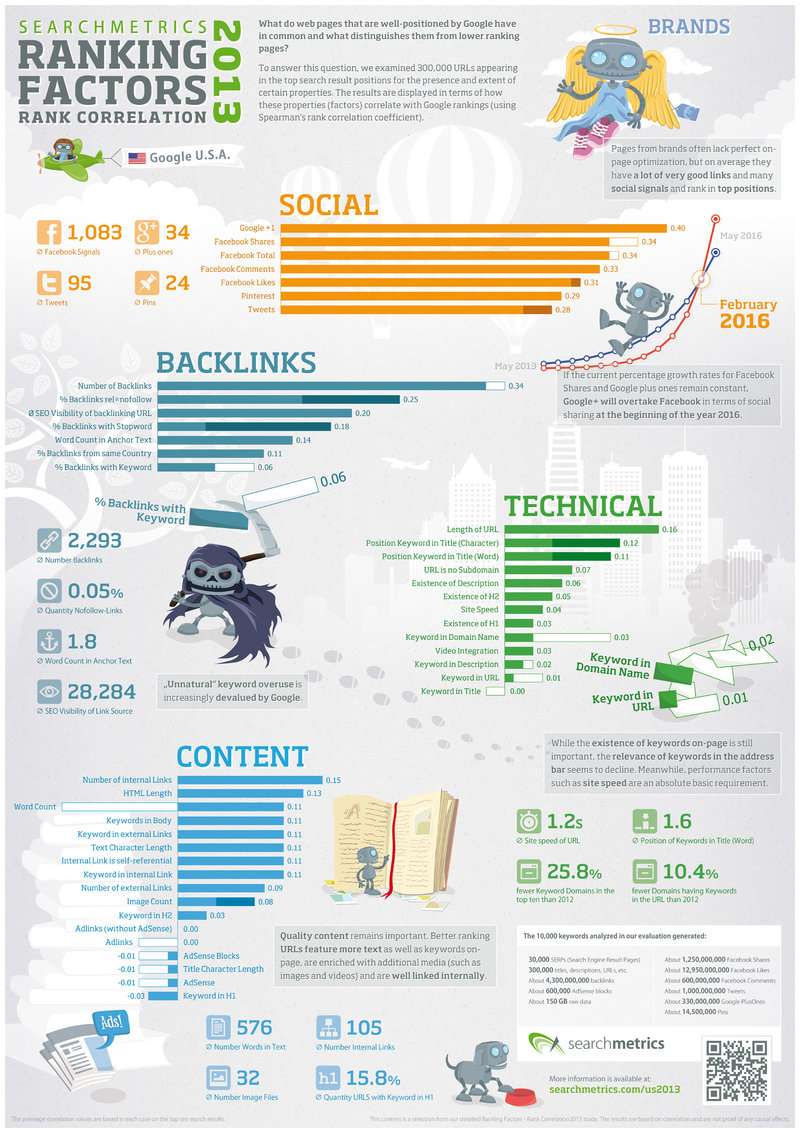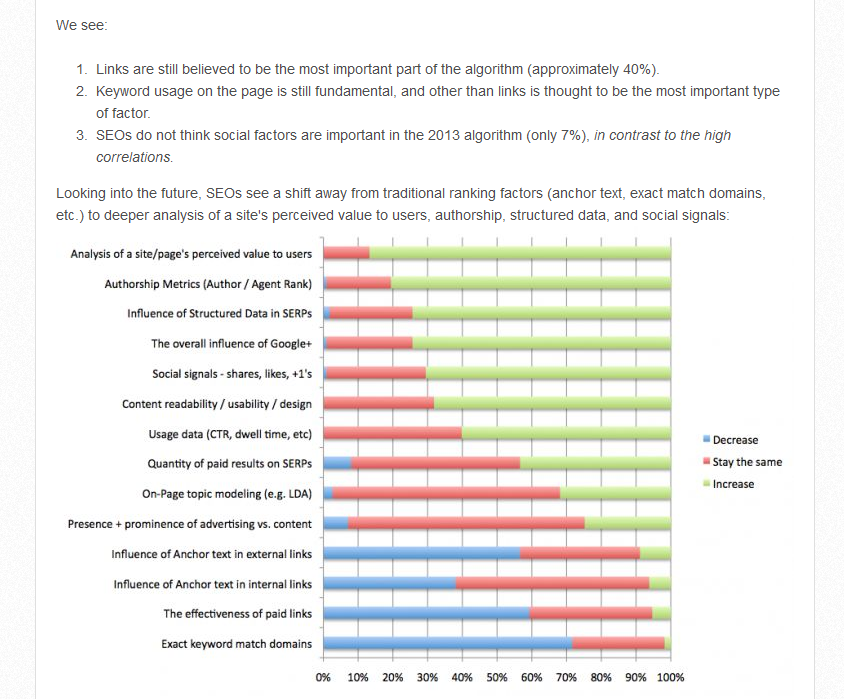What you need to know about SEO ( Search Engine Optimisation)
2 of the best of recent data studies studies are by Moz (formerly SEOMoz) who surveyed 120 SEO people for this and Searchmetrics.
There are some similarities for sure.
- Page Authority correlates higher than any other metric we measured.
- Social signals, especially Google +1s and Facebook shares are highly correlated.
- Despite Penguin, anchor text correlations remain as strong as ever.
- New correlations were measured for schema.org and structured data usage.
- More data was collected on external links, keywords, and exact match domains.
Searchmetrics Overview says:
Top highlights of 2013:
1. Keyword domains and keyword links have lost relevance
2. Brands are the exception to many rules
3. Social signals continue to correlate very well with better rankings
4. Good content is always important: it comes to quality!
5. The number of backlinks remains immensely important
6. On-page technology remains one of the basics
Some of the more interesting findings related to Keywords and EMD/PMD’s (Exact Match Domains/Partial Match Domains)
Moz noted that SEO’s ..”found that the title tag, the body of the HTML, the meta description and the H1 tags all had relatively high correlation……..SEOs also agreed that the keyword in the title and on the page were important factors”
(see the data correlation graphs on the Moz Post)
Matt Peters from Moz.com has written a detailed drill down into keyword relevance vs ranking here.
His takeways:
“Since search engines use sophisticated query and document models, there is no need to optimize separately for similar keywords. For example, any page targeting “movie reviews” will also target “movie review.”
Finally, you can use the conceptual split between relevance and ranking in your workflow. When creating or modifying existing content, first concentrate on making the page relevant to a broad set related keywords. Then concentrate on increasing the search position.”
Searchmetrics in the other hand found..” Keyword links and domains have lost relevance……..The importance of keywords in the URL / domain has significantly decreased as a ranking factor compared to 2012″ and further….
“On-page factors such as the technical side structure and good content are basic requirements for good rankings. The keyword on-page is important, but seems to have been devalued by Google in its relevance as a domain name, as a part of the URL and as the link text.
In contrast, the number and quality of backlinks are probably very important ‒ “natural link profile” and diversity are the keywords here. Social signals continue to correlate positively with better rankings”
Exact Match Domains or Partial Match domains (EMD/PMD) is still a hot topic with SEOs ( where you have your keywords as the domain name exactly or partially)
Moz found ..”The ranking ability of exact and partial match domains (EMD/PMD) has been heavily debated by SEOs recently, and it appears Google is still adjusting their ranking ability……However, we see a see-saw pattern in the EMD correlations where they decreased last fall, then rose back again in the last few months. We attribute the decrease last fall to Google’s EMD update (as announced by Matt Cutts). The increase in correlations between March and June says that the EMDs that are still present are ranking higher overall in the SERPs, even though they are less prevalent. Could this be Google removing lower quality EMDs? ”
Ranking factors continue to shift and change with the Google landscape ( it IS the 900lb Gorilla in SERP’s..!)
Your online marketing consultant needs to stay on top of ALL of them, to adjust your website dynamically and thereby maximise results for you.
Both Moz and Searchmetrics do agree that content and the sites ‘perceived value’ around the nature of that content, to be the thing that everyone needs to get right…….. Content IS still King!
to be the thing that everyone needs to get right…….. Content IS still King!


